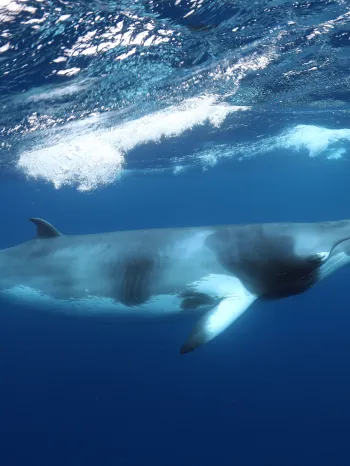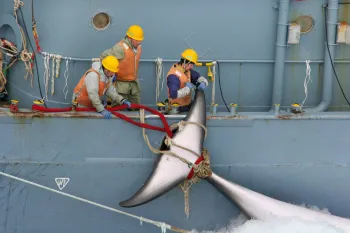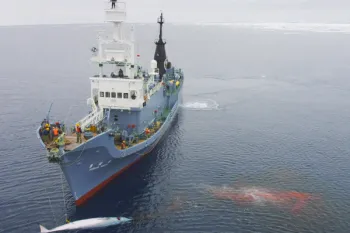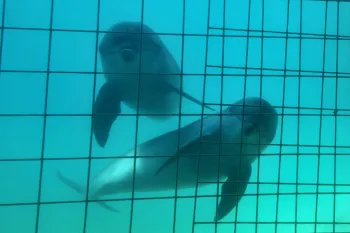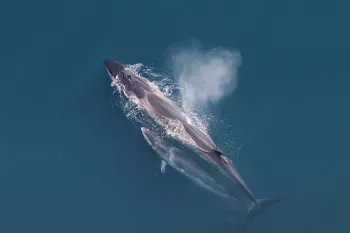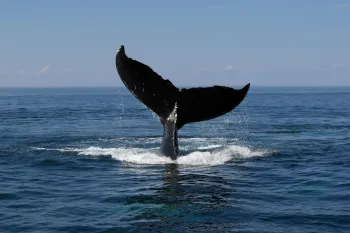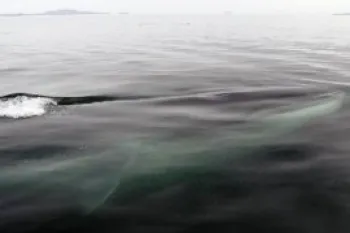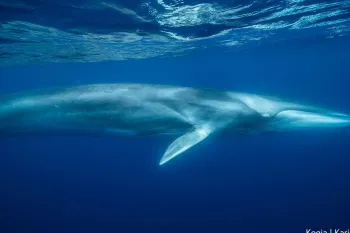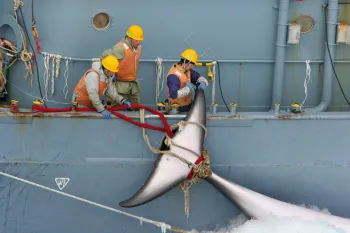Facts About Whaling and Why It Must Stop
Whales are some of the largest animals on our planet, and they are critically important to the ecosystem Some annually migrate from the tropics to the poles, some sing elaborate songs, and many live in complex societies with strong social bonds.
Thanks to the International Whaling Commission (IWC)’s global moratorium on commercial whaling which was implemented in 1986, tens of thousands of whales have been spared from being killed. But tragically, three countries—Japan, Iceland, and Norway—continue to hunt and kill large whales commercially, defying international conservation efforts.
Through global advocacy, policy collaboration, and grassroots campaigns, especially in Iceland, we aim to:
- Support local campaigners fighting for a national ban on whale hunting
- Educate tourists to avoid whale meat while traveling
- Maintain the IWC’s whaling moratorium and push for stronger protections
- advocating to maintain the global moratorium on commercial whaling
- calling for support for new marine sanctuaries like the South Atlantic Whale Sanctuary
- building coalitions who can work together to create a positive change for whales
- educating on the importance of whales in the ecosystem and dispelling harmful myths
Whales are worth far more alive than dead and are critically important for healthy, productive oceans.
Dr. Madison Miketa, Humane World for Animals
Help protect wildlife and keep all animals safe
By making a donation today, you can help Humane World for Animals International combat the wildlife trade around the world
